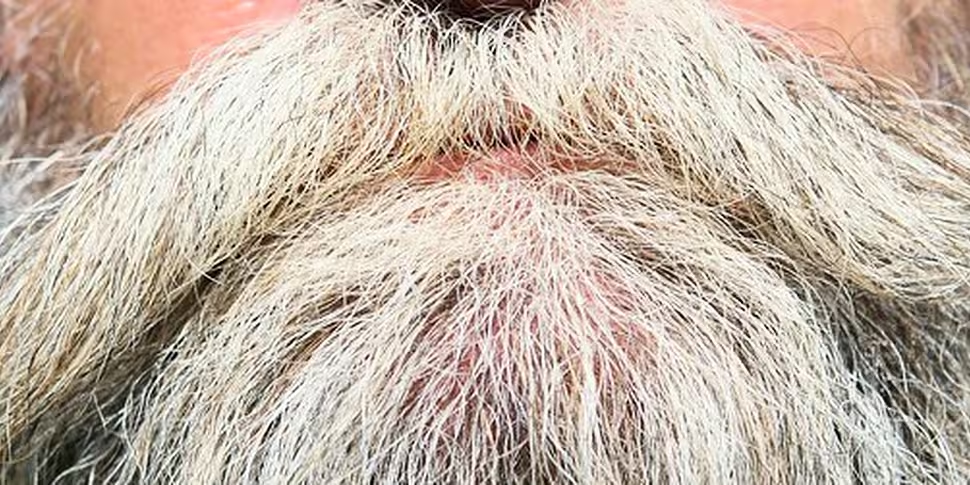Along with frosted tips, beehives, and bowl cuts, when it comes to hair, beards are having their moment. Ignoring the perennial whisker-sporting Sikhs, Muslims, Orthodox Jews, Amish, and a handful of circus-dwelling women, walking down the high street today means crossing paths with any number of men whose look falls somewhere between Tony Stark’s stylised anchor through to 19th-century lumberjack. And now a British barber is proposing the Chancellor of the Exchequer clogs up the fiscal drain on the UK economy by taxing facial hair.
Anthony Kent, a Worcester-based third-generation hair trimmer with a canny ability to get some good PR, says his idea was inspired by that of Tudor monarch Henry VIII, who – historical accuracy be damned – may also have taxed bearded men for the privilege of their hirsute birthright in the 16th century.
Kent is proposing that British taxpaying men pay a maximum of £100 (€130) for wearing the bushiest of beards, halving the cost for “more modest growth,” the Worcester News has reported. The barber cites reading tales of Tudor England’s beard tax as his lightbulb moment.
“My head started whirring away and I started thinking you might be onto something here,” Kent said. “I thought, they need to reduce the deficit, so maybe they can start taxing beards with them being so prevalent at the moment!”

Historians have long disputed reports that the Tudor king Henry VIII levied a beard tax against his subjects [Wiki Commons]
Kent’s proposal is fraught with difficulty, as the historical accuracy of Henry VIII’s 1535 taxation is widely disputed. Despite being reported as fact in countless history books and blog posts, there is almost no evidence to support that. Dr Alun Whithey, an academic expert in the history of medicine and the body, told the BBC as recently as April that the modern texts declaring Henry VIII’s beard tax are not supported by any documents.
Whether or not subjects to the Tudor crown had to dig deep into their pockets, there is a long and well-documented history of taxing adult men for their whiskers in Russia, where Peter the Great introduced an official follicle policy at the end of the 17th century – a decision that left many men reeling.
As the head of the Russian Tsardom and the Russian Empire, Peter’s dislike of facial hair sprouted while he was making his grand tour of Western Europe in 1697. While being entertained in salons by nobility across the decadent west, the Russian ruler started to think that his homeland was falling far behind the rest of the world, and that huge efforts would be required to modernise the country and its people. Introducing widespread economic changes and pushing scientific endeavour, Peter also turned his focus on fashions in the way only an all-powerful emperor can.
Arriving back from his tour in 1698, as Mental Floss describes, a huge reception was thrown in Peter’s honour, with members of the military elite and diplomats waiting to greet their kings. Their chipper moods changed somewhat at the sight of clippers, as their ruler whipped out a pair of barber’s shearers. As biographer Robert K Massie writes, “After passing among his [friends] and embracing them... he began shaving off their beards” himself.

One of the beard tokens received by Russian man who forked over the fee to keep their goatees and beards despite Peter the Great's known hatred for the look [Wikipedia Commons]
Given the delicate political nature of the Russian court, the men aligned in front of Peter the Great had no choice but to turn the other cheek and silently accept their newly groomed appearance. Only the Patriarch of the Russian Orthodox Church – whose long locks of facial hair were considered a symbol of his faith and service to the cloth – was allowed to leave as he had arrived.
Peter the Great’s passion for smooth faces quickly extended beyond his palace, with taxes introduced to financially encourage men to shave or face a bill of 100 roubles a year, described by Russia Today as a “small fortune” at the time. The taxes did not only apply to the aristocracy, as peasants and serfs were subjected to the tax as well, although only when visiting a city. Those poorer men who refused to shave faced a fine of one kopec to continue wearing their beards.
For those men determined to keep their facial hair, any man who had paid his tax was given a freshly minted ‘beard token’, a metal coin akin to a motor tax shield that could be presented when threats of forcible shaving were made. The metal counters featured an image of a Russian eagle on one face and a nose, mouth, and whiskers on the other, along with the ominous description “The beard is a superfluous burden.”
It would take the best part of a century for Peter the Great’s beard tax to be done away with in 1772, despite him becoming ‘Peter the Late’ in 1725.









